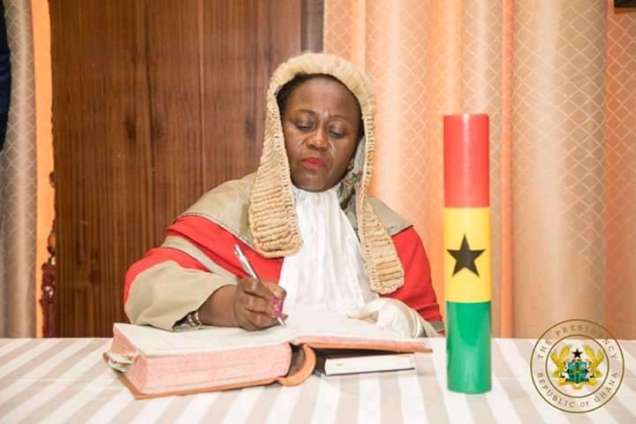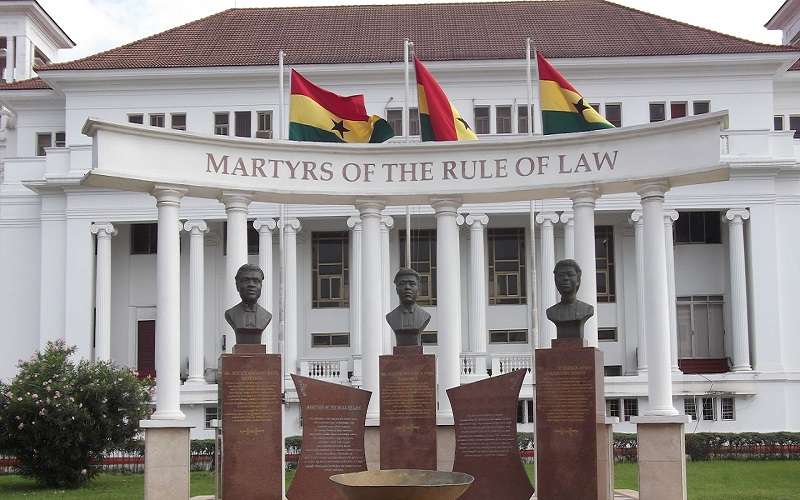NDC stalwart and Chief Executive Officer of the National Petroleum Authority (NPA), Edudzi Tameklo, has criticized the New Patriotic Party’s (NPP) decision to file a writ at the Supreme Court to declare the Chief Justice’s removal process null and void.
According to him, the Constitution places no obligation on the President to refer, consult, or notify the Chief Justice before engaging the Council of State in such matters.
Given this, Tameklo critically examined the legal foundation of the NPP’s argument, raising concerns about its validity and alignment with constitutional principles.
He questioned whether the party’s position was grounded in established legal precedents or merely a politically motivated stance aimed at influencing judicial processes.
“Where in the…Constitutional provisions is the President under legal duty to refer, consult or notify the CJ of the pendency of the petition prior to the engagement with the Council of State?”
Edudzi Tameklo
He pointed to Article 146 of the Constitution, which outlines the process for removing Justices of the Superior Court and Chairmen of Regional Tribunals, emphasizing that the law is clear on the procedure.
Article 146 states that a Justice of the Superior Court or a Chairman of a Regional Tribunal cannot be removed from office unless there is proof of misconduct, incompetence, or an inability to perform their duties due to physical or mental incapacity.
“A Justice of the Superior Court of Judicature or a Chairman of a Regional Tribunal may only be removed in accordance with the procedure specified in this article.”
Edudzi Tameklo

Furthermore, Clause 3 outlines that when the President receives a petition for the removal of a Justice of a Superior Court, excluding the Chief Justice, the petition must be referred to the Chief Justice for a determination on whether a prima facie case exists.
If such a case is established, the Chief Justice then forms a committee to investigate and make recommendations to the President.
“In cases where the Chief Justice is the subject of the petition, the Constitution stipulates that, ‘the President shall, acting in consultation with the Council of State, appoint a committee consisting of two Justices of the Supreme Court, one of whom shall be appointed chairman by the President, and three other persons who are not members of the Council of State, nor members of Parliament, nor lawyers.’”
Edudzi Tameklo
Tameklo argued that the President has followed due process, making the NPP’s challenge unnecessary and baseless.
He further stressed that all proceedings under this article are conducted in private, with the concerned Justice or Chairman given the right to defend themselves.
He added that the President’s decision must align with the recommendations of the committee established for the investigation.
The Legal Debate Intensifies
Meanwhile, Democracy and Development Fellow at the Center for Democratic Development (CDD-Ghana), Prof. Stephen Kwaku Azar, has also weighed in on the controversy.

He reaffirmed his long-standing position that the mere filing of an injunction—let alone a writ—does not, and should not, serve as an automatic restraint on public officials from performing their duties.
“We have reiterated this position time without number, including in public statements issued in 2015 and again in 2024.
“Those statements remain as relevant and authoritative today as they were when first issued, underscoring the enduring importance of allowing duty bearers to function unless lawfully restrained by a specific court order.”
Prof. Stephen Kwaku Azar
Prof. Azar warned that entertaining such legal maneuvers could set a dangerous precedent, effectively allowing litigants to immobilize the government through procedural exploitation.
According to him, governance is an ongoing process, and duty bearers must be permitted to fulfill their responsibilities unless explicitly ordered otherwise by a competent court.

The legal battle over the Chief Justice’s removal has sparked intense debate, with many seeing it as a politically motivated power struggle.
The NPP’s decision to challenge the removal process has been interpreted by some as an attempt to protect judicial officers appointed under its administration, while others argue that the government is merely following constitutional guidelines.
Tameklo remains firm in his position that the Constitution does not require the President to consult the Chief Justice before engaging with the Council of State in such matters.
He believes the NPP’s actions are driven by political interests rather than genuine constitutional concerns.
With the Supreme Court set to deliberate on the matter, the ruling could have far-reaching implications for the interpretation of constitutional provisions relating to the removal of justices.
Until then, the political and legal arguments continue to unfold in what is shaping up to be a significant test for Ghana’s judicial and constitutional framework.
READ ALSO: ‘Electricity Not Free’, Users Must Pay Now







